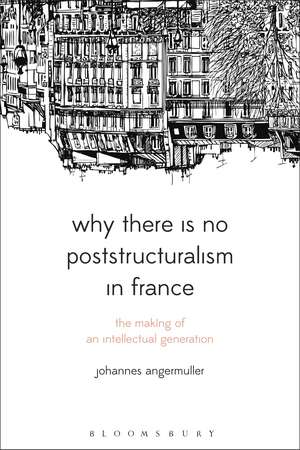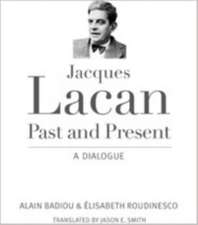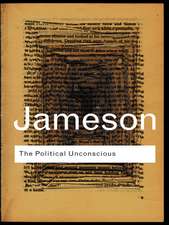Why There Is No Poststructuralism in France: The Making of an Intellectual Generation: Bloomsbury Studies in Continental Philosophy
Autor Johannes Angermulleren Limba Engleză Paperback – 25 iul 2018
| Toate formatele și edițiile | Preț | Express |
|---|---|---|
| Paperback (1) | 234.71 lei 6-8 săpt. | |
| Bloomsbury Publishing – 25 iul 2018 | 234.71 lei 6-8 săpt. | |
| Hardback (1) | 595.90 lei 6-8 săpt. | |
| Bloomsbury Publishing – 7 oct 2015 | 595.90 lei 6-8 săpt. |
Din seria Bloomsbury Studies in Continental Philosophy
- 14%
 Preț: 179.26 lei
Preț: 179.26 lei - 23%
 Preț: 179.10 lei
Preț: 179.10 lei - 13%
 Preț: 238.22 lei
Preț: 238.22 lei - 31%
 Preț: 772.98 lei
Preț: 772.98 lei - 30%
 Preț: 773.39 lei
Preț: 773.39 lei - 14%
 Preț: 888.65 lei
Preț: 888.65 lei - 22%
 Preț: 772.98 lei
Preț: 772.98 lei - 13%
 Preț: 258.33 lei
Preț: 258.33 lei - 23%
 Preț: 256.02 lei
Preț: 256.02 lei - 30%
 Preț: 715.00 lei
Preț: 715.00 lei -
 Preț: 255.66 lei
Preț: 255.66 lei - 22%
 Preț: 773.06 lei
Preț: 773.06 lei - 14%
 Preț: 891.10 lei
Preț: 891.10 lei - 30%
 Preț: 774.20 lei
Preț: 774.20 lei - 13%
 Preț: 257.97 lei
Preț: 257.97 lei - 30%
 Preț: 715.00 lei
Preț: 715.00 lei - 22%
 Preț: 774.62 lei
Preț: 774.62 lei - 13%
 Preț: 256.20 lei
Preț: 256.20 lei -
 Preț: 256.59 lei
Preț: 256.59 lei - 22%
 Preț: 257.50 lei
Preț: 257.50 lei - 13%
 Preț: 257.03 lei
Preț: 257.03 lei - 13%
 Preț: 257.68 lei
Preț: 257.68 lei - 13%
 Preț: 258.15 lei
Preț: 258.15 lei - 30%
 Preț: 715.19 lei
Preț: 715.19 lei - 13%
 Preț: 256.49 lei
Preț: 256.49 lei - 22%
 Preț: 891.10 lei
Preț: 891.10 lei -
 Preț: 255.94 lei
Preț: 255.94 lei - 13%
 Preț: 236.45 lei
Preț: 236.45 lei - 30%
 Preț: 714.92 lei
Preț: 714.92 lei - 30%
 Preț: 773.81 lei
Preț: 773.81 lei - 22%
 Preț: 772.98 lei
Preț: 772.98 lei - 22%
 Preț: 889.08 lei
Preț: 889.08 lei - 30%
 Preț: 714.61 lei
Preț: 714.61 lei -
 Preț: 256.59 lei
Preț: 256.59 lei - 14%
 Preț: 772.98 lei
Preț: 772.98 lei - 22%
 Preț: 257.68 lei
Preț: 257.68 lei - 22%
 Preț: 891.75 lei
Preț: 891.75 lei - 30%
 Preț: 773.81 lei
Preț: 773.81 lei
Preț: 234.71 lei
Preț vechi: 304.16 lei
-23% Nou
Puncte Express: 352
Preț estimativ în valută:
44.91€ • 46.89$ • 37.17£
44.91€ • 46.89$ • 37.17£
Carte tipărită la comandă
Livrare economică 04-18 aprilie
Preluare comenzi: 021 569.72.76
Specificații
ISBN-13: 9781350094475
ISBN-10: 1350094471
Pagini: 144
Dimensiuni: 156 x 234 mm
Greutate: 0.21 kg
Editura: Bloomsbury Publishing
Colecția Bloomsbury Academic
Seria Bloomsbury Studies in Continental Philosophy
Locul publicării:London, United Kingdom
ISBN-10: 1350094471
Pagini: 144
Dimensiuni: 156 x 234 mm
Greutate: 0.21 kg
Editura: Bloomsbury Publishing
Colecția Bloomsbury Academic
Seria Bloomsbury Studies in Continental Philosophy
Locul publicării:London, United Kingdom
Caracteristici
Challenges the misconception that there was a coherent post-structuralist school in France, and instead maps the varying institutional contexts, affinities, and rivalries of the thinkers who produced French Theory
Notă biografică
Johannes Angermuller is Professor of Discourse and directs the DISCONEX research group at the university of Warwick, UK and at School for Advanced Studies in the Social Sciences (EHESS) in Paris, France.
Cuprins
Preface 1 Introduction: the intellectual field in France 1.1 'Poststructuralism'-an international misunderstanding? 1.2 Structuralism and post-structuralism in intellectual sociology of intellectuals 2 Structuralism versus post-structuralism. The birth of an intellectual generation 2.1 The transformations of Theory. From structuralism to 'poststructuralism' 2.2 Why there is no poststructuralism in France. Foucault, Derrida & Co. in the French intellectual field 2.2.1 Theoretical lines of conflict. Structuralists and ex-, non- and anti-structuralists 2.2.2 The arena of political conflict: the Communist Party and '68 2.2.3 Schools, clans, networks 2.2.4 Disciplinary cleavages between the human sciences and philosophy 2.2.5 Alternative education routes: elite academics versus colorful résumés 2.2.6 Peripheral institutions against the academic center 3 Rise and decline of the structuralist generation 3.1 From modernity to postmodernity: the intellectual field since the Enlightenment 3.2 The boom of the human sciences in the 1960s and 1970s 3.3 The formation of the structuralist generation 3.4 The neoliberal turn of the 1980s 4 From Theory in France to French Theory: the making of 'poststructuralism' in the post-national university 5 The Moment of Theory: the Social After Society Notes References Index
Recenzii
Angermuller is deft in cross-cutting between developments in French intellectual life and their often very partial, biased or distorted reception-history outside France. His shrewdly selective deployment of concepts from Bourdieu offers a number of striking insights into the formative conditions of (so-called) 'French Theory' and its uptake among critics and commentators in other national/cultural traditions. It is certainly the most comprehensive and thoroughly researched study of its kind to date and unlikely to be superseded as a standard work on the subject.
Angermuller's work offers illumination in a much-neglected field; it pertinently avoids simple reductivism by emphasizing a constitutive antagonism in the object of theory and society itself.
Angermuller's work offers illumination in a much-neglected field; it pertinently avoids simple reductivism by emphasizing a constitutive antagonism in the object of theory and society itself.















